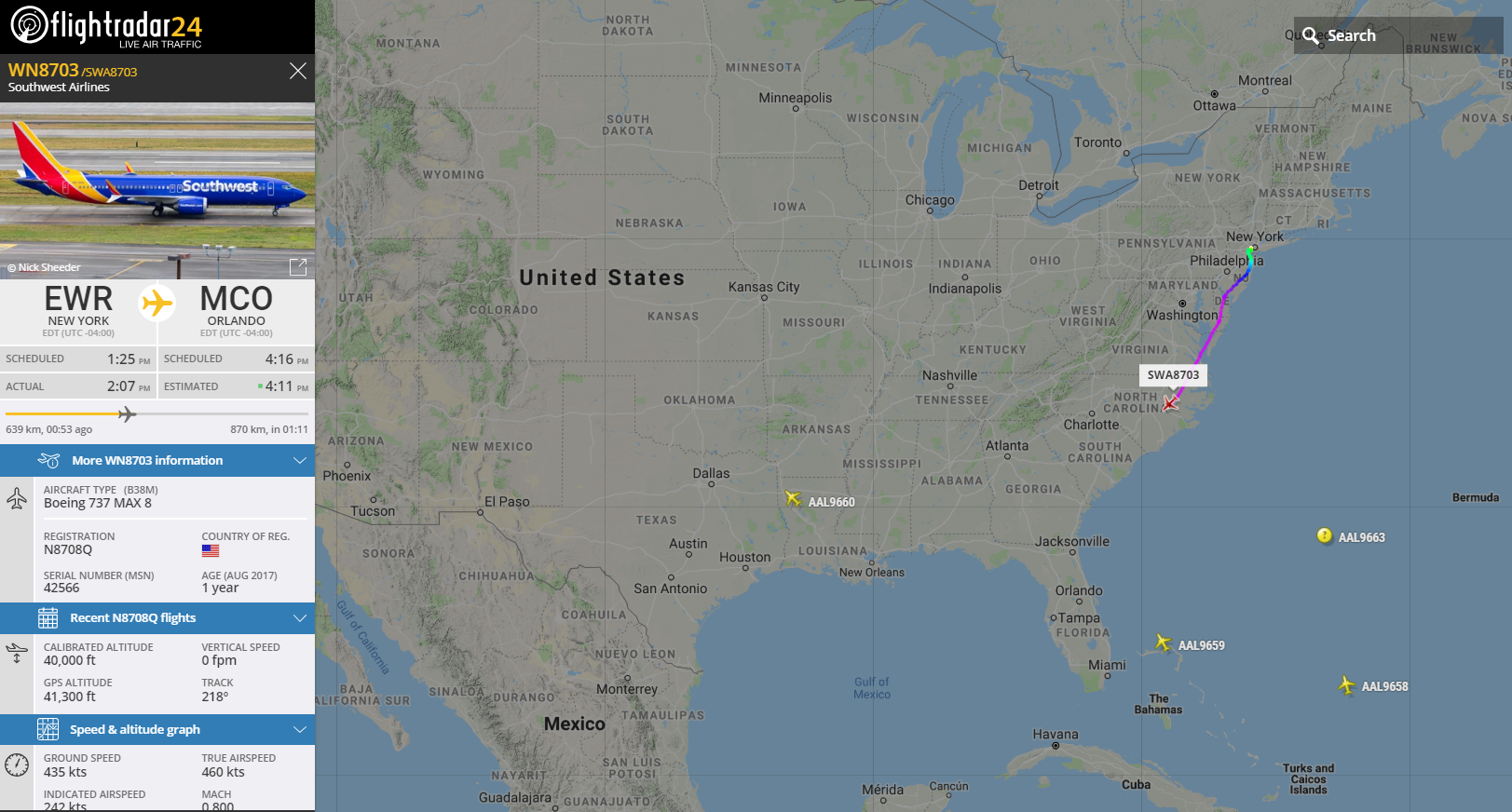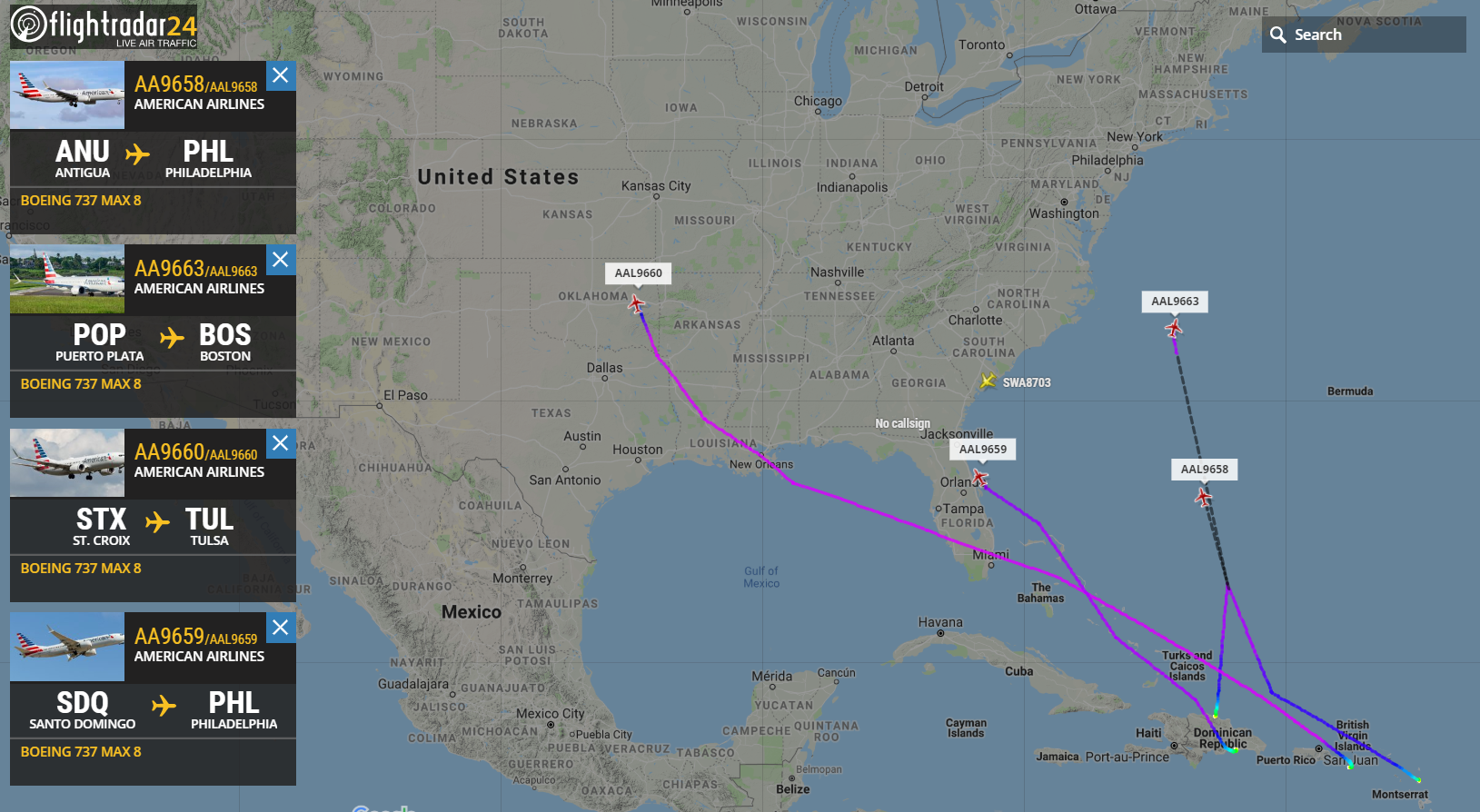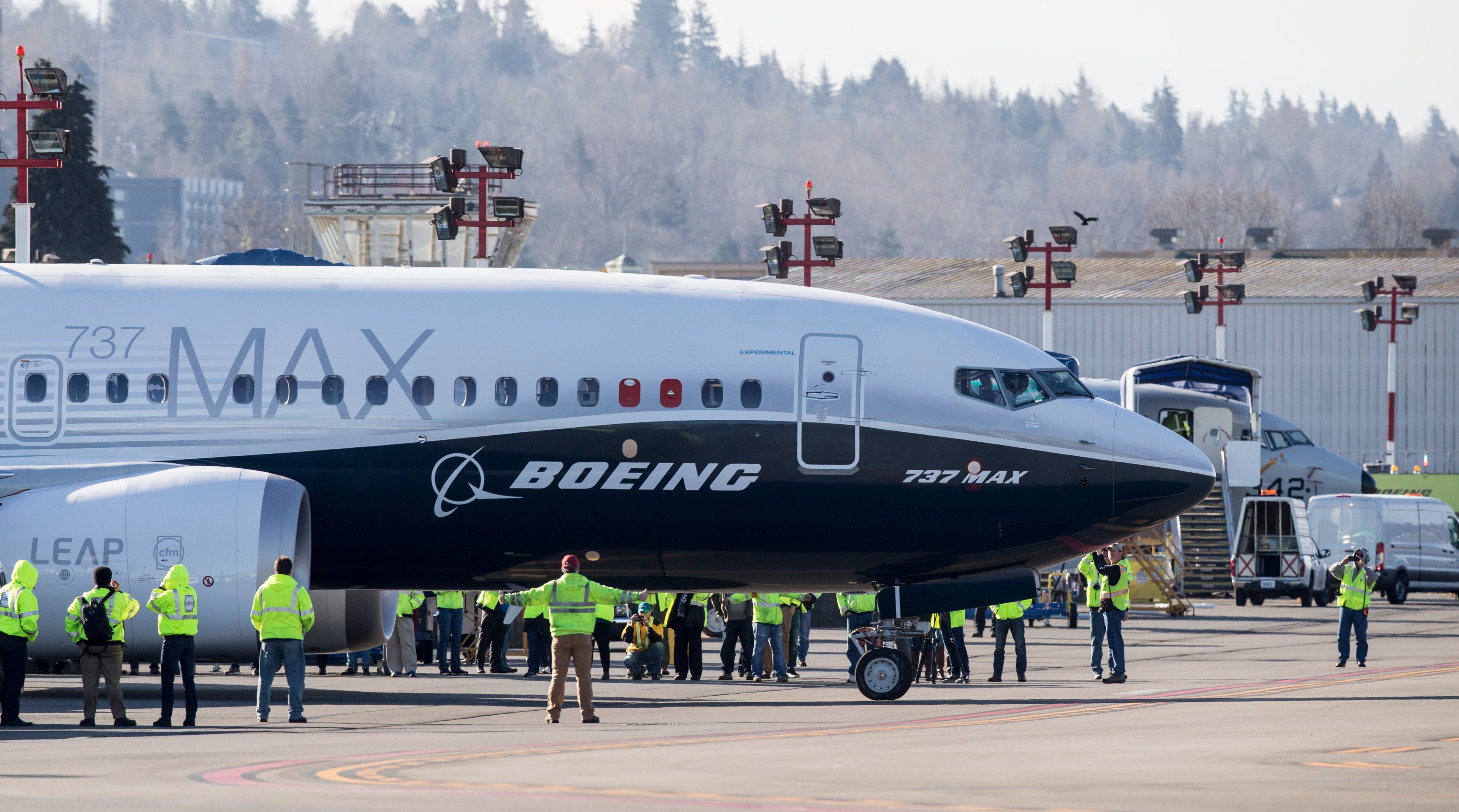How US Airlines Are Dealing with the Grounding of the 737 MAX
It's official: the 737 MAX is grounded in the US as well as pretty much everywhere else in the world. US-based airlines have some of the largest 737 MAX fleets in the world, with Southwest, American Airlines and United having a total of 72 between them.
Combined, these airlines have around 2,500 aircraft in their active fleets. So, 72 grounded airplanes might not seem like it'd have much of an impact. However, those 72 aircraft were scheduled to operate more than 2,000 flights per week. When you consider aircraft seating arrangements, that's more than 355,000 flight-seats that are suddenly being pulled from capacity, leaving a logistical nightmare for airlines as they try to swap other aircraft in to replace the grounded ones.
And these issues are being compounded by other issues at Southwest and American Airlines. Even before the 737 MAX grounding, Southwest was cancelling hundreds of flights due to ongoing disputes with its maintenance workers, which has been costing the airline millions of dollars per week. American Airlines grounded 14 of its Boeing 737-800 aircraft for inspection after "Project Oasis" retrofits were found to be incorrectly done.
We checked in with airlines to see how these US airlines are dealing with the 737 MAX grounding.
[table-of-contents /]
Southwest
Southwest was the first North American Boeing 737 MAX operator and currently has the largest MAX fleet of any airline in the world with 34. However, with a vast total of airplanes at its disposal, 754, Southwest doesn't expect much of an operational impact.
A Southwest spokesperson confirmed that "the MAX 8 only operated approximately 4% of our daily flights" and that the airline will "strive to operate our MAX flights on other available aircraft."
Midday Thursday, one of Southwest's 737 MAX was in the air -- positioning from Newark (EWR) to Orlando (MCO), without passengers.

Since Southwest didn't share the number of cancellations forced by the grounding, we checked FlightAware's cancellation tracker. Through 4:15pm ET Thursday, Southwest has cancelled 324 flights. However, many of these are likely due to inclement weather. In addition to these cancellations, Southwest already has cancelled 163 flights for Friday and 99 flights on Saturday.

American Airlines
The world's largest airline -- and the second-largest operator of the 737 MAX -- has provided a detailed report of what's going to happen to its 737 MAX aircraft during the grounding.
According to an official at the airline, AA expects to cancel around 85 flights per day due to the grounding. AA is rearranging its flights to try to limit these cancellations to routes that have multiple flights each day, rather than cancelling the only flight to a destination.
For example, on AA's 2x daily 737 MAX flights to Quito, Ecuador (UIO), the airline is cancelling one flight and swapping in a larger Boeing 757 to accommodate as many passengers as possible. That's a win for the passengers flying up front, as they will get a true lie-flat business class seat rather than a premium economy seat sold as business class.
22 of the 24 grounded 737 MAX in AA's fleet are being repositioned for temporary storage. American Airlines has confirmed that these flights will only have flight crew on-board -- no passengers or flight attendants. The flights will operate with a 96XX flight number. Four of these flights were in the air at 3:30pm ET:

Once all of the aircraft are repositioned, AA is parking its 24 Boeing 737 MAX at the following airports:
| Airport | # | Tail Numbers |
|---|---|---|
Tulsa (TUL) | 9 | N350RV, N314RH, N342RX, N335RT, N303RE, N324RN, N326RP, N315RJ, N328RR |
Orlando Melbourne (MLB) | 3 | N308RD, N310RF, N316RK |
Mobile Downtown (BFM) | 2 | N303RG, N323RM |
Boston (BOS) | 2 | N324RA, N321RL |
Philadelphia (PHL) | 2 | N336RU, N338RS |
Phoenix (PHX) | 2 | N304RB, N313SB |
New York JFK | 1 | N306RC |
Las Vegas (LAS) | 1 | N302SA |
San Francisco (SFO) | 1 | N343RY |
St. Louis (STL) | 1 | N341RW |
The large number of aircraft being stored at Tulsa makes sense, as American Airlines has a massive maintenance base there. However, besides Boston -- which typically has 4x scheduled 737 MAX flights a day -- no other airports have scheduled AA 737 MAX flights. That means that AA will have to ferry these aircraft from these airports when the grounding is resolved. It seems the airline has calculated that the cost of parking these aircraft at these other airports would be cheaper than storing the planes at airports where it usually flies the MAX.
United
While Southwest and American Airlines use the same MAX 8 version that was involved in both the Lion Air and Ethiopian crashes, United has a small fleet of the larger MAX 9 aircraft.
A United Airlines spokesperson told us that the airline plans to deal with the grounding by "swapping aircraft" and that it is "planning on covering all flights at this time."
TPG's resident United expert Zach Honig found that -- while some formerly-MAX flights were being upgraded to larger aircraft, in one case with Polaris business class -- there was at least one cancellation of a planned 737 MAX flight "because of an unexpected operational issue."
According to FlightAware's cancellation tracker, United has cancelled 152 flights through 4:15pm ET Thursday -- but many are likely due to weather. However, the airline has only cancelled 10 flights Friday and just one United flight is cancelled so far Saturday.
Financial Impacts
During a slow period, US-based airlines may be able to handle this grounding in the short term with little impact to operations by utilizing other aircraft or rebooking passengers onto existing flights. However, this grounding is happening during a mini-peak period of travel as families and students head off for spring break trips.
While no airlines have shared the financial impact of the 737 MAX grounding yet, the numbers could be large. Using these airlines' published Total Revenue per Available Seat Mile (TRASM) for 2018 and the total Available Seat Miles (ASM) that these airlines had scheduled on 737 MAX aircraft, here's an estimate of how much revenue these airlines could be losing each week from this grounding:
- Southwest: $30.5 million
- American Airlines: $19.1 million
- United: $11.7 million
Note that this is just an estimate, as it assumes that TRASM for the 737 MAX is equivalent to the average for the entire airline's fleet for 2018 and that the reduction in available seat miles reduces revenue by a proportional amount.
In an investor alert sent out Wednesday afternoon, Raymond James analysts pointed out that airlines are going to have a negative hit to their financials in another way: cost. Replacing the MAX with less fuel efficient aircraft "likely places additional pressure on costs as well as operational stress." However, these extra costs are likely going to be "recouped from either insurance and/or Boeing."
TPG featured card
at Capital One's secure site
Terms & restrictions apply. See rates & fees.
| 5X miles | Earn 5X miles on hotels, vacation rentals and rental cars booked through Capital One Travel |
| 2X miles | Earn unlimited 2X miles on every purchase, every day |
Pros
- Stellar welcome offer of 75,000 miles after spending $4,000 on purchases in the first three months from account opening. Plus, a $250 Capital One Travel credit to use in your first cardholder year upon account opening.
- You'll earn 2 miles per dollar on every purchase, which means you won't have to worry about memorizing bonus categories
- Rewards are versatile and can be redeemed for a statement credit or transferred to Capital One’s transfer partners
Cons
- Highest bonus-earning categories only on travel booked via Capital One Travel
- LIMITED-TIME OFFER: Enjoy $250 to use on Capital One Travel in your first cardholder year, plus earn 75,000 bonus miles once you spend $4,000 on purchases within the first 3 months from account opening - that’s equal to $1,000 in travel
- Earn unlimited 2X miles on every purchase, every day
- Earn 5X miles on hotels, vacation rentals and rental cars booked through Capital One Travel
- Miles won't expire for the life of the account and there's no limit to how many you can earn
- Receive up to a $120 credit for Global Entry or TSA PreCheck®
- Use your miles to get reimbursed for any travel purchase—or redeem by booking a trip through Capital One Travel
- Enjoy a $50 experience credit and other premium benefits with every hotel and vacation rental booked from the Lifestyle Collection
- Transfer your miles to your choice of 15+ travel loyalty programs
- Top rated mobile app


